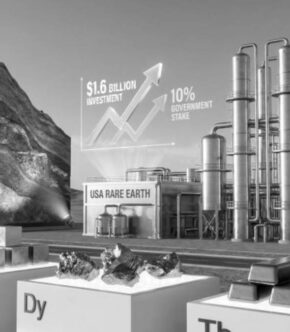WSJ accounts show the American job market is currently undergoing a significant transformation, particularly within the white-collar sector. This shift is characterized by a wave of layoffs in major corporations and a notable decrease in job quitting rates, signaling a potential recalibration of the job market’s dynamics.
Several high-profile companies, including Amazon, Citigroup, Xerox, Google, and BlackRock, have recently announced plans to downsize their workforce. This trend is not isolated but reflects a broader movement among corporations to optimize efficiency and reduce costs in a changing economic landscape. For instance, Dan Clancy, CEO of Twitch, a streaming platform owned by Amazon, emphasized the need for companies to be smaller. In a memo to staff, he stated, “Despite efforts to reduce costs, our organization is still meaningfully larger than it needs to be given the size of our business.” This sentiment is echoed across various sectors, indicating a shift in corporate strategy towards leaner operations.
The role of artificial intelligence in this transition cannot be overstated. AI’s ability to automate tasks that were traditionally handled by white-collar workers is a significant factor driving these layoffs. As Nick Bunker, director of North American economic research at Indeed, points out, “The layoffs we saw last year were the beginning of a process.” This process involves reallocating resources towards technological advancements like AI, while reassessing the necessity of large human workforces.
While the labor market remains ostensibly strong, with a low unemployment rate and continued job creation, the underlying dynamics are more complex. The Federal Reserve’s interest rate hikes have led to increased borrowing costs, causing businesses to reconsider their expansion and hiring plans. Additionally, the decrease in consumer spending, a key driver of economic activity, is affecting the job market. As household savings dwindle, more people are entering the job hunt, leading to a slowdown in hiring and smaller wage increases.
This cooling of the job market is further evidenced by the recent drop in job quitting rates. In 2023, there was a 12% decline in the number of Americans quitting their jobs compared to the previous year. This shift indicates a growing caution among workers, who are now less confident in their ability to find new and better job opportunities amid news of layoffs and a potential economic downturn. The change is starkly different from the post-pandemic period, when resignations surged, and labor shortages were widespread. The current environment reflects a more subdued job market, with fewer compelling opportunities for workers to leave their current roles.
The impact of these changes on wage growth is significant. As Brett Ryan, a senior U.S. economist at Deutsche Bank, explains, “The declining quits rate will limit how fast wages grow, as companies are less pressured to attract and keep workers.” This dynamic is beneficial for the Federal Reserve’s efforts to tame inflation but may not be well-received by workers seeking higher pay.
Despite the layoffs and decreased job quitting rates, the overall number of job openings remains above pre-pandemic levels. However, the gap between open jobs and unemployed individuals is narrowing, indicating a tightening labor market. While not all workers are being forced out of their jobs, the notable job cuts in various sectors, including technology and media, suggest that more layoffs may be on the horizon.
The American job market is experiencing a period of adjustment, marked by significant layoffs in the white-collar sector and a decline in job quitting rates. These trends reflect a broader shift towards a more cautious and efficiency-driven approach by corporations in a changing economic environment.
The questions remain: Will these white collar workers find ways to become productive? Will they be able to adopt and entrepreneurial spirit and create, evolve and make America stronger? Or will they wilt from the challenge and accept lesser positions, both for themselves and for America in the world.











